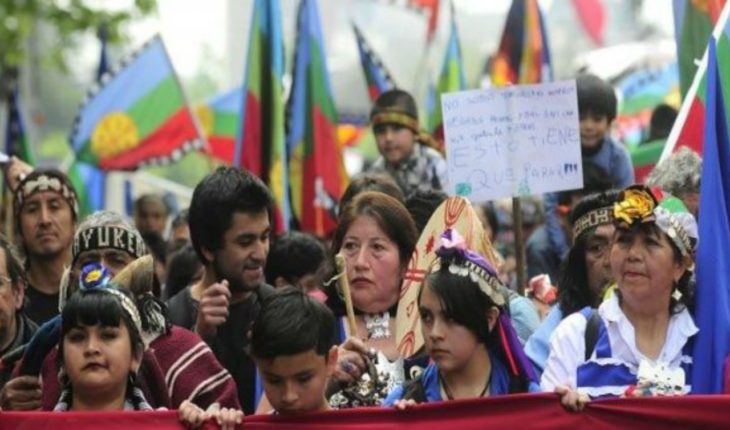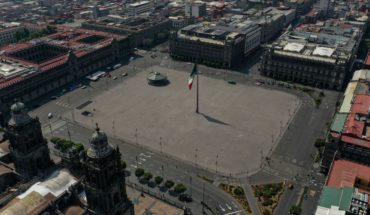One of the central themes of the claims required by the mapuche mobilization is the installment of autonomy t territorial in which can develop fully the provisions contained in Convention 169 of the ILO (1989) and the Declaration of United Nations on rights of indigenous peoples (2006), both ratified by Chile.
So far, the authorities have adopted a wrong perspective in the face of the indigenous demand for autonomy, whereas a separatist threat – Treaty as an issue of public safety-, rather than deal with it as a demand for a different citizenship than It is based in the community. The State should commit forward seriously with indigenous peoples in defining territorial boundaries where prevail both individual especially as collective rights, that is, political autonomy.
The current system of land management aimed at indigenous peoples plans prove inadequate because, in the majority of cases, only limited to targeting of resources, low participation in decisions giving communities involved. They do not meet the requirements of the current demand for indigenous territorial reconstruction, self-government and self-management of their development plans, or least with international standards on human rights.
Within indigenous commitments that President Michelle Bachelet expressed in its Government programme special emphasis to a change in land use planning through a process of consultation with indigenous peoples, is made to establish reforms that generating spaces of autonomy and self-determination at the territorial level through the generation of special statutes of autonomy. This presidential commitment points to the essence of the current indigenous demand, however the history of similar policies are not very encouraging.
Previous experiences of this kind have not proved how expected. Thus for example the approval of the constitutional reform that establishes special for Easter Island and the Juan Fernández archipelago statutes (Art. 126 bis) in the month of July 2007, still fails to implement is already constitutional organic law which should regulate it entered Congress on July 2, 2008 it is in its first constitutional procedure.
A constitutional amendment requires a high quorum for its approval in Congress, it seems extremely difficult to negotiate in the case of a territory in conflict and the major private investments in the area. In addition, in the current situation the Government does not have the political capital necessary to undertake reforms of this magnitude.
Without abandoning the previous commitment, we believe that it would be more feasible in the immediate use the tools contained in current legislation, by introducing reforms to the territorial policy in the Areas of indigenous development. This must involve effective participation of the communities involved and the gradual transfer of decision-making levels as the design of programmes that affect them directly. Ultimately, the transfer of skills, resources and progressive levels of autonomy.
New indigenous policy should aim, among other things, to transfer on operation and management of programs. A suitable path might locate the spaces in which is easier to give up quotas of self-government and self-management. As well as providing all the necessary support for the development of skills that enable the success of this new policy. This next productive support and incentives for the inclusion in the market of the indigenous producers.
The challenge of democratic governance is to adjust policies to international standards of human rights, incorporated into the political agenda the progressive perspective of self-determination of peoples and their territoriality.
Chile adopted a speech and some multicultural policies in accordance with the guidelines of the World Bank, IMF, IDB and a new image and reputation with the international community. The multicultural character of the public policies implemented in Chile was characterized by privileging the redistribution of resources, leaving aside the discussion on the recognition of the rights of indigenous peoples.
Many of the policies pushed by the State placed emphasis on the indigenous as an individual, providing production support, market entry, purchase of land, but not recognition of status of people. The authorities have emphasized the role that the mapuche people can play to enrich the diversity of Chilean society, but they see their demands for rights collective, cultural, territorial and libredeterminacion, as a violation of national development, to the property rights of the forestry companies and local elites.
During the Decade of the ‘ 90s premium a welfare approach, which configures or displays a beneficiary indigenous subject, a devoid individual who need helps State, in line with the social policy focused on overcoming poverty. Indigenous issues can not be addressed through social policies that focus from a conceptual approach focused on overcoming poverty or marginalization, reducing the problems of the mapuche people to a mere matter of lack and need unsatisfied.
Indigenous 19.253 law only recognizes the concept of “land” and not “territory” as stated in Convention 169 of the ILO, i.e., the totality of the habitat of the regions indigenous peoples occupy or use in any way (Convention 169, article 13). For its part, the Inter-American Court of human rights set the precedent that indigenous territories emerge and are applicable under the occupation and traditional uses. A future constitutional recognition must establish indigenous territorial rights to encompass a broader and different concept that is related to the collective right to survival as organized people, with control of their habitat as one necessary condition for the reproduction of their culture and their development.
As a people, the indigenous people have the right to autonomy or self-government (Art.4, Universal Declaration of the rights of indigenous peoples). They must define the political conditions that allow them to build levels of territorial autonomy, ensuring the realization and full exercise of their rights, i.e. autonomously determine its political organisation and its legal institutions. The United Nations on the rights of indigenous peoples Declaration States that indigenous peoples have the right to self-determination (political autonomy in defining development strategies and local government). States should invest in helping indigenous peoples contribute to the development of self-government powers. The denial of this demand for self-determination and poverty are deeply connected factors and it should be taken into account in the design of public policies. The World Conference on human rights (Vienna Declaration and programme of action of) considered that the denial to the right to self-determination is a violation of human rights and underlines the importance of the effective realization of a right fundamental.
Poured in this op-ed content is the sole responsibility of the author and do not necessarily reflect the editorial line nor the counter position.




